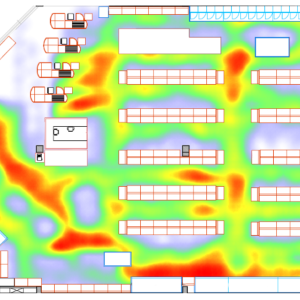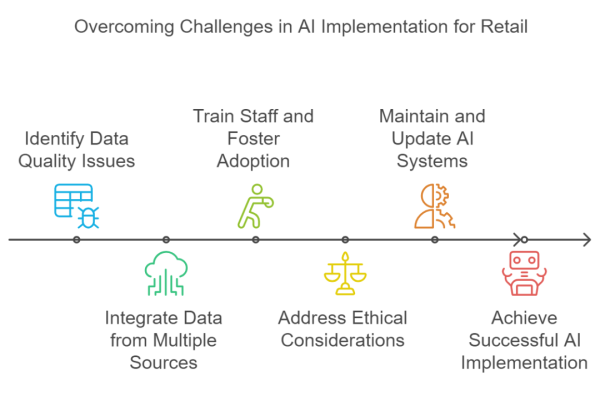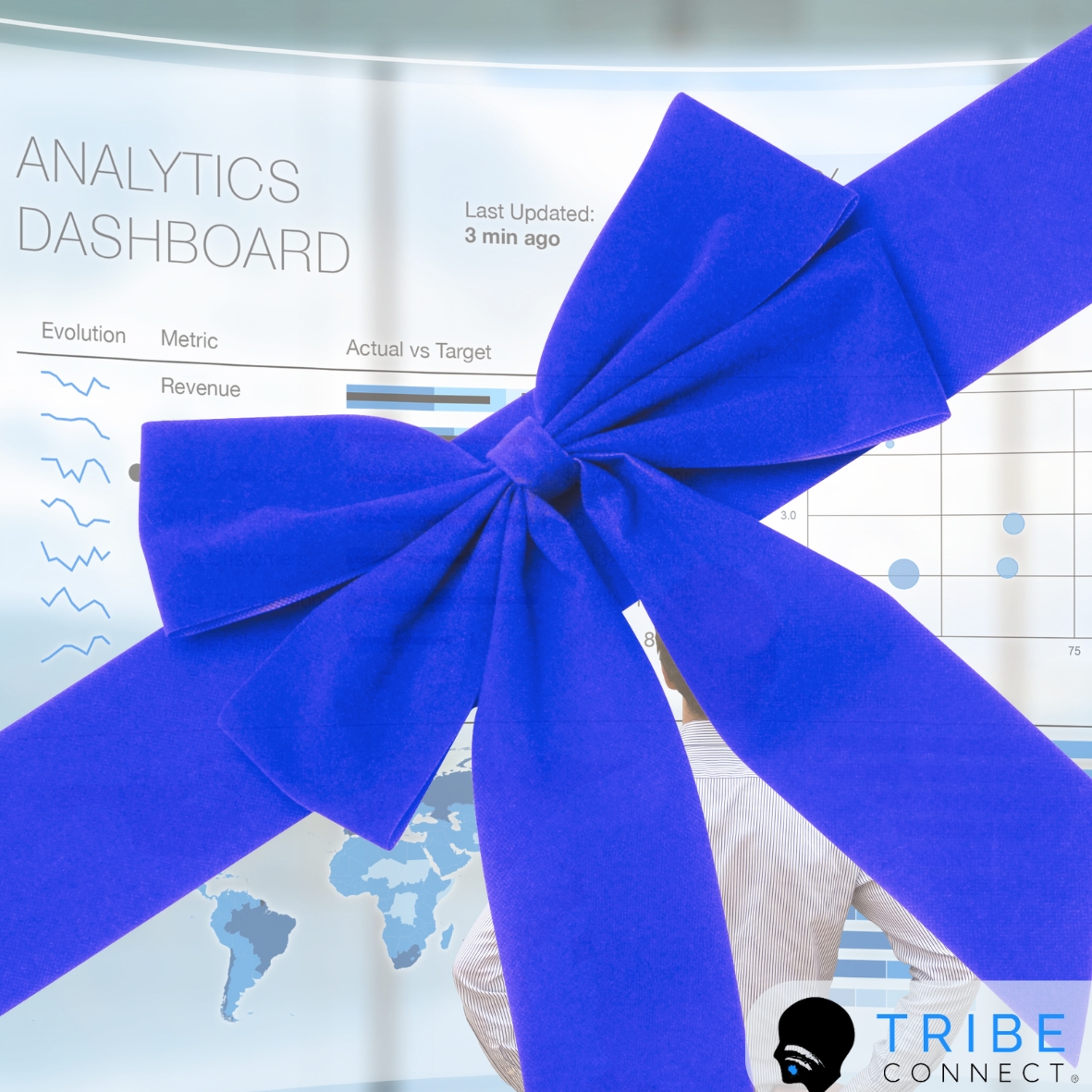By Emma Lester-Devitt, Managing Partner & Co-Founder

In today's fast-paced retail environment, staying ahead of the curve is not just an advantage - it’s a necessity. As consumer electronics and telecommunications brands strive to maintain their competitive edge, two areas have emerged as critical battlegrounds: inventory management and demand forecasting. Enter artificial intelligence (AI), a game-changing technology that's reshaping how retailers approach these crucial aspects of their operations.
The AI Revolution in Retail
Artificial intelligence is no longer the stuff of science fiction. It's a powerful tool that's transforming industries across the board, and retail is no exception. By leveraging AI, retailers can make smarter decisions, streamline operations, and ultimately deliver a better customer experience. According to a report by Juniper Research,
“global retail spending on AI will reach $7.3 billion annually by 2024, up from an estimated $2 billion in 2019”
Smarter Inventory Management with AI
Real-time Stock Monitoring
One of the most immediate benefits of AI in inventory management is its ability to monitor stock levels in real-time. Advanced AI systems can:
- Track product movement across multiple locations
- Automatically update inventory counts
- Alert staff to low stock levels or discrepancies
This real-time insight allows retailers to maintain optimal stock levels, reducing both overstocking and stockouts. A study by McKinsey found that AI-enabled supply chain management can reduce forecasting errors by 20 to 50 percent and reduce lost sales due to product unavailability by up to 65 percent.

Predictive Maintenance
For retailers dealing with electronic devices, predictive maintenance is a game-changer. AI algorithms can:
- Analyse device performance data
- Predict when a demo unit might fail
- Schedule maintenance before issues occur
This proactive approach ensures that demo devices are always in top condition, enhancing the customer experience and reducing downtime. Research by Deloitte indicates that predictive maintenance can reduce maintenance planning time by 20-50% and increase equipment uptime and availability by 10-20%.
Automated Reordering
AI takes the guesswork out of reordering. By analysing historical sales data, current trends, and even external factors like weather or local events, AI systems can:
- Determine optimal reorder points
- Suggest order quantities
- Initiate orders automatically
This level of automation not only saves time but also optimises inventory levels, freeing up capital that would otherwise be tied up in excess stock. A case study by IBM found that an AI-powered inventory management system helped a major retailer reduce inventory costs by 8% while simultaneously improving in-stock availability.
The Future of Forecasting: AI-Powered Demand Prediction
Pattern Recognition at Scale
Traditional forecasting methods often fall short in today's complex retail landscape. AI excels at recognising patterns in vast amounts of data, including:
- Historical sales data
- Seasonal trends
- Economic indicators
- Social media sentiment
By analysing these diverse data points, AI can provide more accurate and nuanced demand forecasts. Gartner predicts that by 2025,
“75% of enterprises will shift from piloting to operationalising AI, driving a 5X increase in streaming data and analytics infrastructures.”
Dynamic Pricing Strategies
AI doesn't just predict demand - it can help shape it. Through dynamic pricing, AI systems can:
- Adjust prices in real-time based on demand
- Optimise pricing for specific products or customer segments
- Balance profit margins with sales volume
This flexibility allows retailers to maximise revenue while remaining competitive. A study by Accenture found that:
“AI-powered dynamic pricing can lead to a 5% increase in revenue and a 2% increase in profit margins.”
Personalised Marketing Impact
Understanding how marketing efforts impact demand is crucial. AI can:
- Analyse the effectiveness of different marketing channels
- Predict the impact of promotional activities on demand
- Suggest optimal timing for campaigns
By aligning marketing efforts with demand forecasts, retailers can ensure they're prepared for spikes in interest and sales. Research by McKinsey suggests that AI-driven personalisation can:
“reduce acquisition costs by up to 50% and increase revenue by 5-15%.”
The Retail Insights Advantage
While AI's role in inventory management and demand forecasting is revolutionary, its potential doesn't stop there. For telecommunications and consumer electronics retailers, AI opens up new avenues for gathering and analysing retail insights.
Customer Behaviour Analysis
AI-powered systems can track and analyse customer interactions with demo devices, providing valuable insights into:
- Which features attract the most attention
- How long customers engage with different products
- The journey customers take through the store
These insights can inform product placement, store layout, and even product development decisions. A report by Capgemini found that 79% of retailers implementing AI saw at least a 10% increase in customer satisfaction.

Staff Performance Optimisation
By analysing sales data alongside staff schedules and customer traffic patterns, AI can help optimise staffing levels and identify top performers. This data can be used to:
- Schedule staff more effectively
- Provide targeted training
- Recognise and reward high-performing team members
A study by Deloitte found that AI-driven workforce management can improve productivity by 20-30% and reduce labour costs by 5-10%.
Competitive Intelligence
AI's data analysis capabilities extend beyond the walls of your own stores. By analysing publicly available data, AI can provide insights into:
- Competitor pricing strategies
- Market trends
- Emerging consumer preferences
This intelligence allows retailers to stay one step ahead in a competitive market. According to IDC, by 2025, 40% of leading consumer brands will employ AI-enabled competitive intelligence to understand changing consumer behaviour and deliver personalised experiences.
Implementing AI: Challenges and Considerations
While the benefits of AI in retail are clear, implementation comes with its own set of challenges:
- Data quality and integration: AI systems are only as good as the data they're fed. Ensuring clean, integrated data from various sources is crucial.
- Staff training and adoption: Introducing AI systems requires buy-in from staff at all levels. Training and change management are key to successful implementation.
- Ethical considerations: As AI systems handle more data, ensuring privacy and ethical use of customer information becomes increasingly important.
- Continuous improvement: AI systems need ongoing maintenance and updates to remain effective. This requires a commitment to continuous learning and adaptation.
A survey by Gartner found that 37% of organisations still struggle with AI implementation, citing lack of skills, data quality, and fear of the unknown as primary challenges.

The Future is Now
For Heads of Retail Operations and Retail Marketing, the message is clear: AI is not just the future of retail - it's the present. By embracing AI applications in inventory management and demand forecasting, retailers can:
- Reduce costs through optimised inventory levels
- Increase sales by ensuring product availability
- Enhance customer experience with well-maintained demo units
- Make data-driven decisions based on accurate forecasts and deep insights
The retail landscape is evolving rapidly, and AI is at the forefront of this transformation. Those who harness its power today will be well-positioned to lead the market tomorrow. According to a recent report by PwC, AI could contribute up to $15.7 trillion to the global economy by 2030, with $6.6 trillion coming from increased productivity.
As you consider the role of AI in your retail strategy, remember that the journey to implementation doesn't have to be taken alone. Partners like Tribe Telecom specialise in bridging the gap between cutting-edge technology and practical retail applications. With expertise in maintaining connectivity for demo devices and delivering actionable retail insights, Tribe Telecom can help you navigate the AI revolution and unlock its full potential for your business.
The future of retail is intelligent, connected, and data-driven. Are you ready to lead the charge? Then get in touch today.
Follow us on LinkedIn for our latest news.


